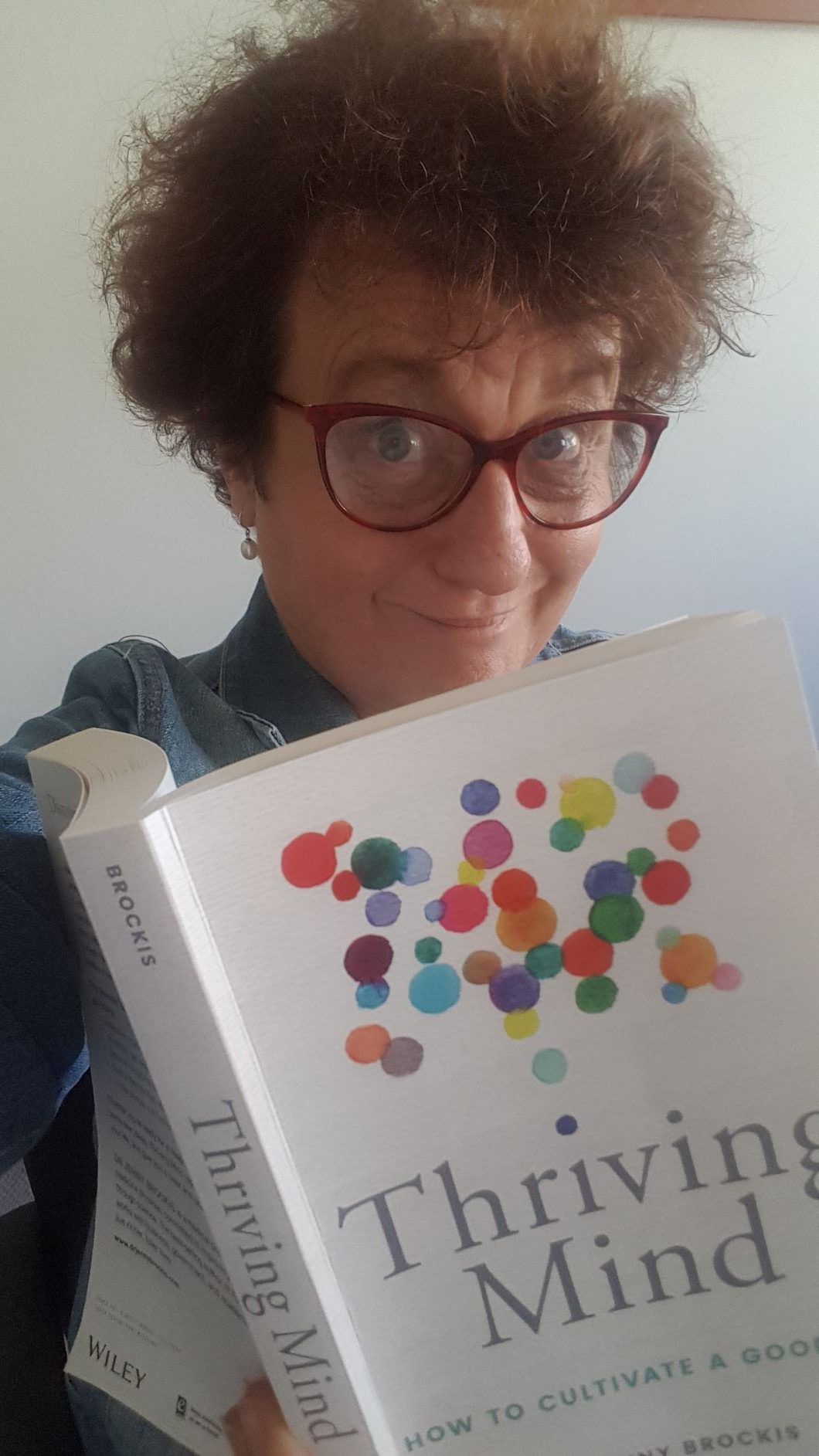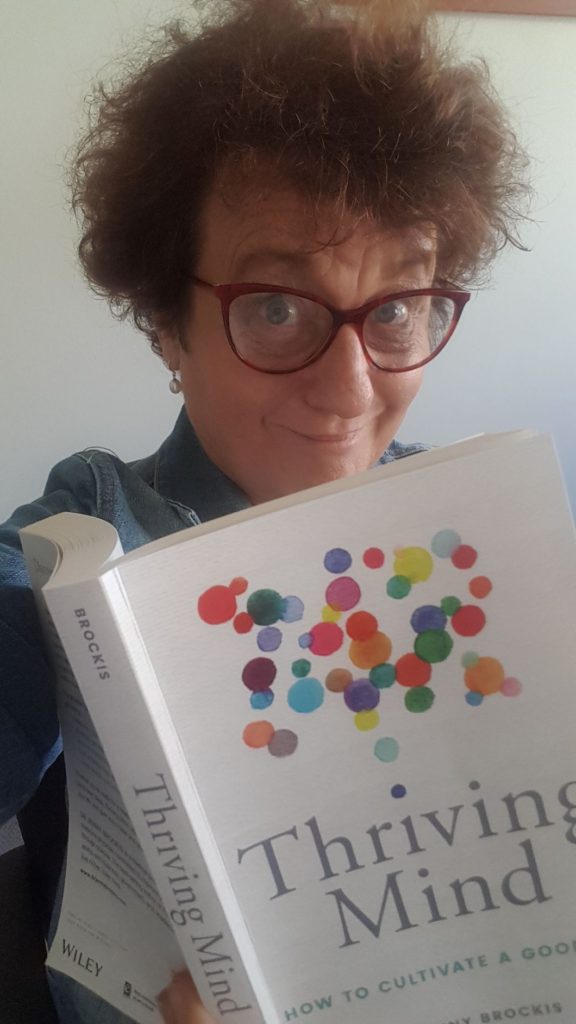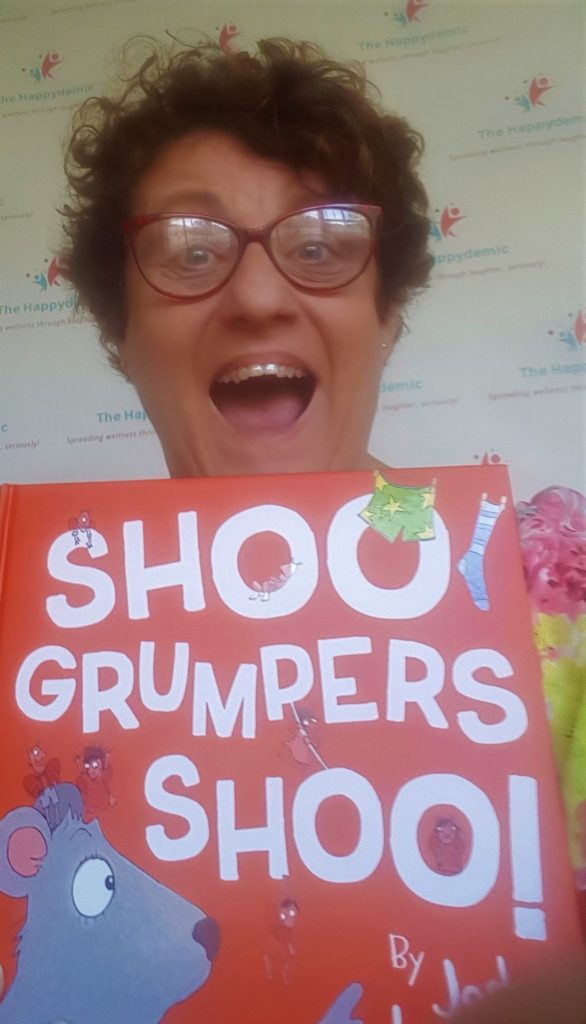
Two inspired reads for the pursuit of happiness no matter what age
This week I’ve witnessed princesses, pirates, astronauts, a lion, Nemo, a dinosaur, SpongeBob SquarePants, witches and wizards, a Cat wearing a Very Tall Hat, an Avenger or three, and a zombie enter the school gates near my home. The dress-ups have been part of Children’s Book Week 2020, celebrating and embracing curious creatures and wild minds that are developed in the pages of books.
I’ve always been a reader, whether for the escapism that a well-crafted novel provides or to feed my insatiable thirst for understanding. In recent months, two very different books prompted AH-HA moments and I feel compelled to share them with you.
Both books share the common theme of living with more happiness.

Perth lifestyle medicine physician Dr Jenny Brockis presents Thriving Mind: how to cultivate a good life (Wiley, RRP$27.95).
It’s a comprehensive science-based and thought-provoking practical guide to a healthier happier life.
I’ve been a fan of Jenny Brockis for some years (all the more for her courage to bare her own challenges in life, revealing in Thriving Mind her experiences of burnout and depression). As Brockis writes, life is not perfect, and neither are we, yet we are perfectly able to make small gradual changes when we identify what’s missing in our life.
What it takes to make a thriving mind
Much of what Brockis writes reminds me of my grandmother’s home-spun wisdom; it’s commonsense – albeit backed by really compelling research:
- Eat well
- sleep well
- Move your body
- Be engaged with others
- Help others
- Live with purpose, kindness and gratitude
- Be respectful and trusting
- Enjoy the outdoors
- Be mindful
- Be playful.
My Nan wasn’t one for ‘mindfulness’ as we think of it today although her practice of sitting quietly with “a nice cup of tea”, savouring its warmth and aroma without a word before sipping, was undoubtedly a mind-calming strategy.
I was also delighted to see that playfulness, laughter (indeed laughter yoga specifically), music and dance were elevated to being intrinsic to the thriving mind (rather than relegated to ‘a bit of fun’).
I like that Brockis breaks the physiological impacts down in each section – referring to the ‘brainy’ facts. I like also that she writes ‘prescriptions’ at the end of every chapter. For example, your prescription for greater kindness and compassion may be to:
- take the challenge of a random of act of kindness every day
- smile more
- take action to put things right
- demonstrate you care by focusing outward, on others.
As I read Thriving Mind: how to cultivate a good life the first time, I found myself nodding and smiling and ah-ha-ing throughout. It’s now well-thumbed and won’t be relegated to an out-of-the way shelf because it is so very warm-hearted and practical.
The real reason behind doona days
The other book came to my attention while entertaining a 5-year-old a few weekends ago. As he cuddled up, immersed in the story, I experienced an Ah-HA revelation.
Have you ever wondered why some mornings you wake up yearning for a doona day? I now know that’s when GRUMPERS are at play – and I know just what to do to beat them.

According to Shoo Grumpers Shoo by Josh Lawson (Scholastic, RRP $17.99), smiles, dancing, singing and laughter are what’s needed because grumpers hate nothing more than the deafening roar of a chuckling chortle or grinning guffaw!
“Say goodbye to those grumpy old grumpers for sure when you’re rolling around in fits on the floor.”
Whether you’re wanting to take the ‘brainy’ bits on board or delight in some child-like playful storytelling, both books offer effective strategies to adopt a more positive mindset and a healthier, happier life no matter what age.
(c) 2020 HeatherJoy Campbell
HeatherJoy Campbell is a leading Australian practitioner of laughter wellbeing practices, using laughter yoga as a platform for her sessions in workplaces, in communities and in aged care facilities. She runs a weekly suburban laughter club, building connection and resilience in her Brisbane neighbourhood and trains others to become laughter leaders in Queensland.